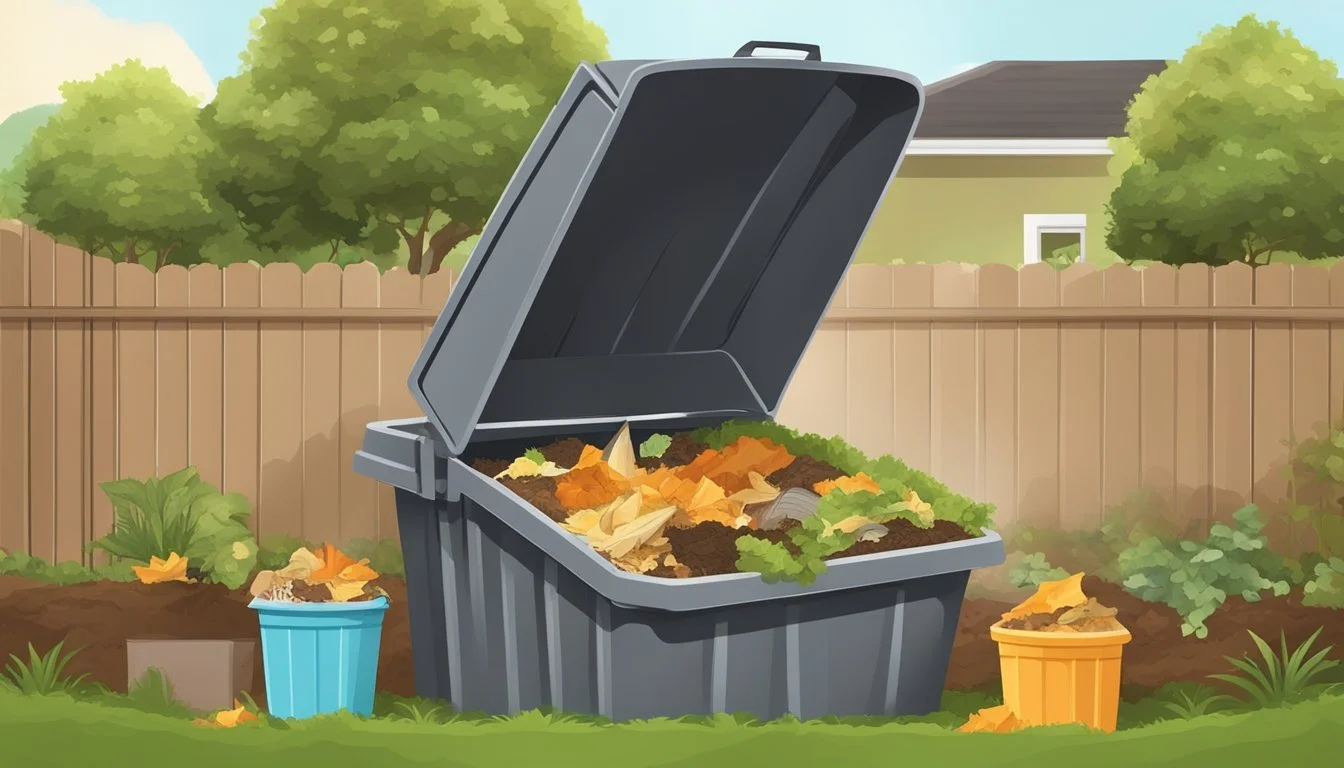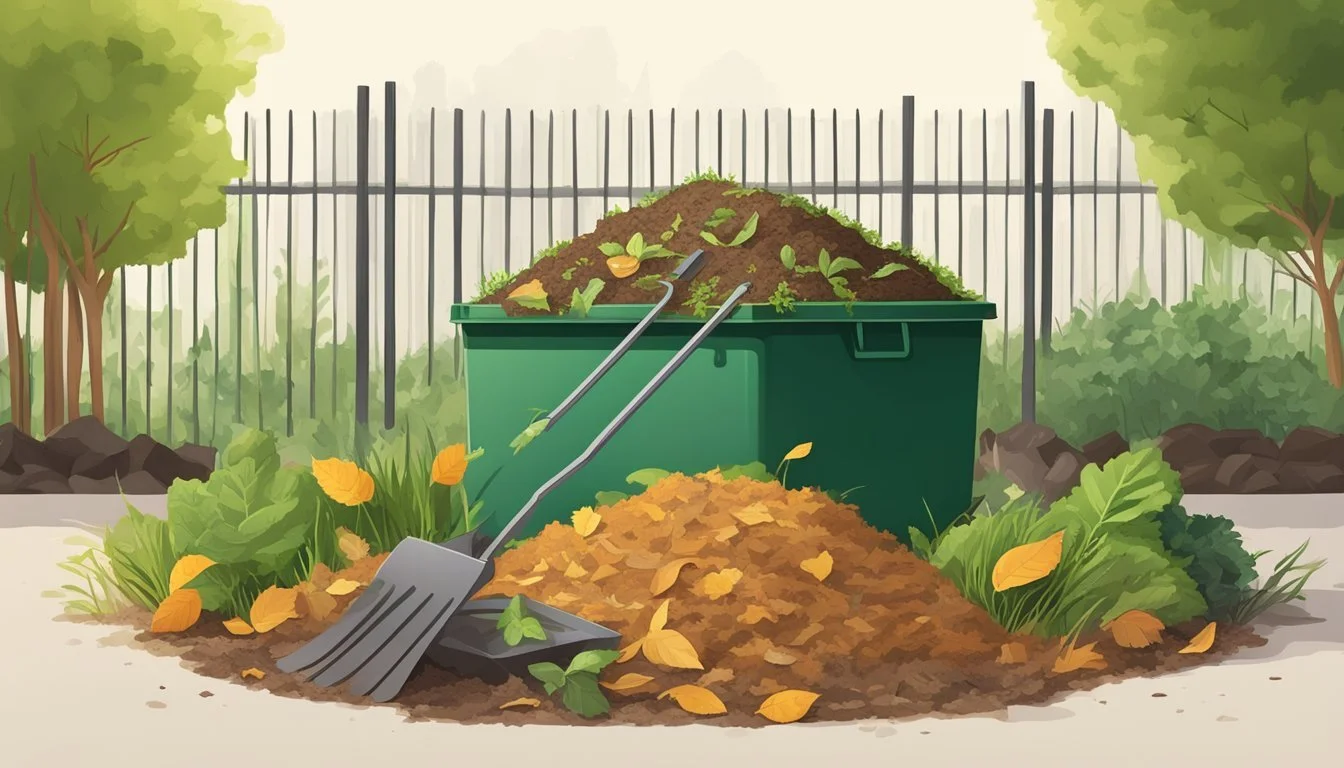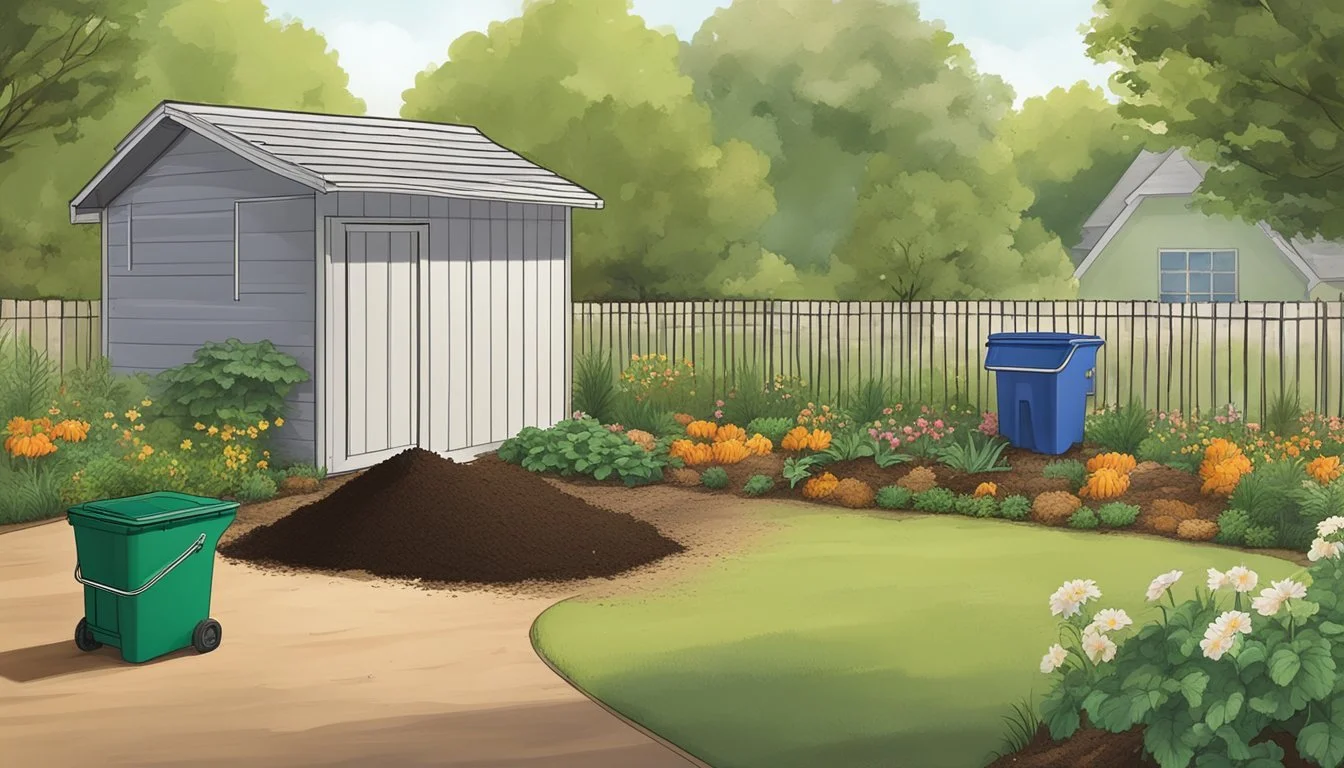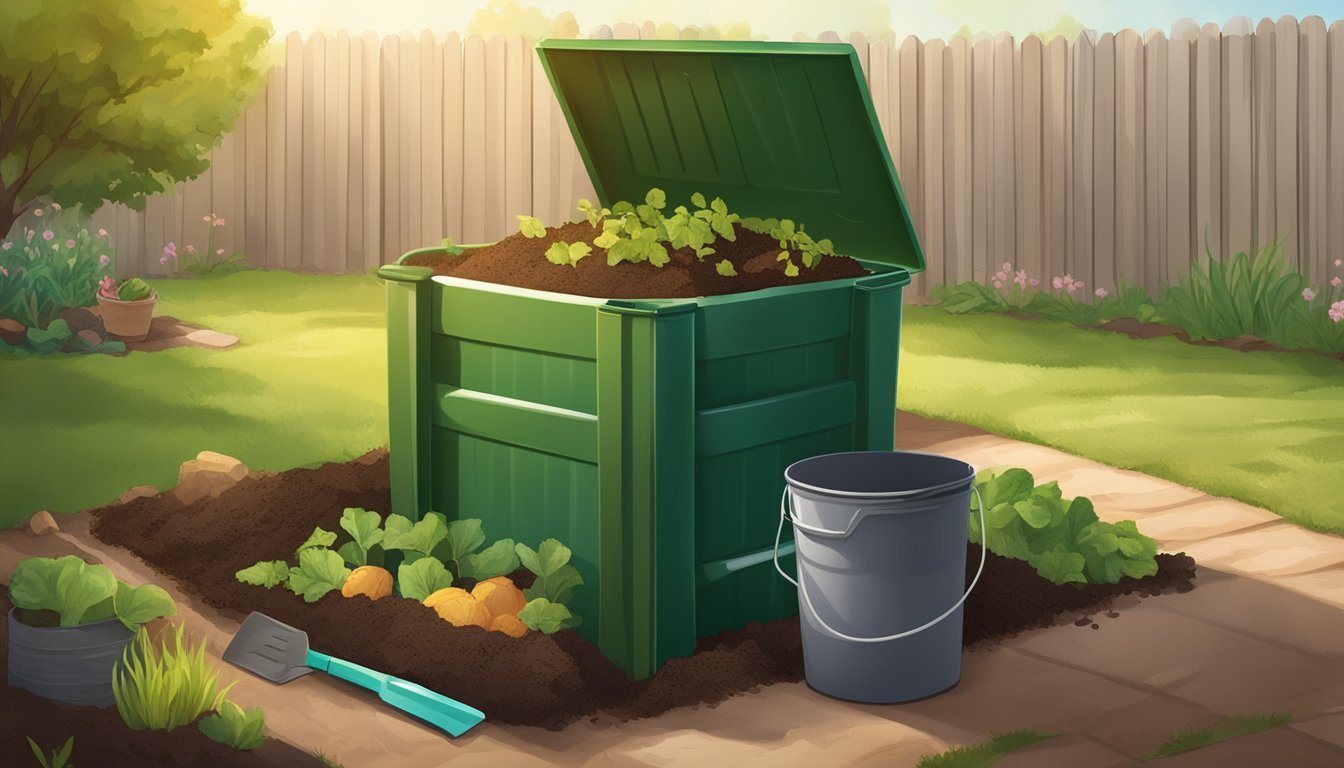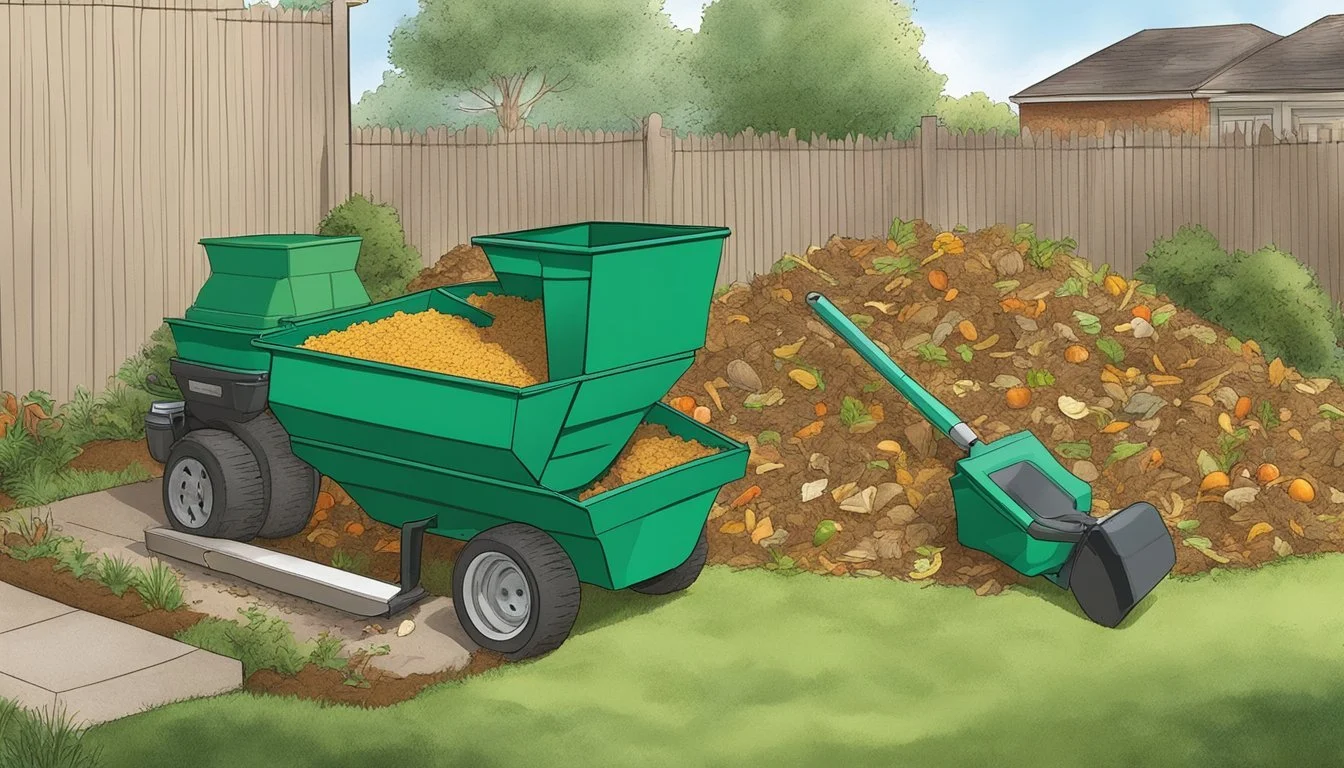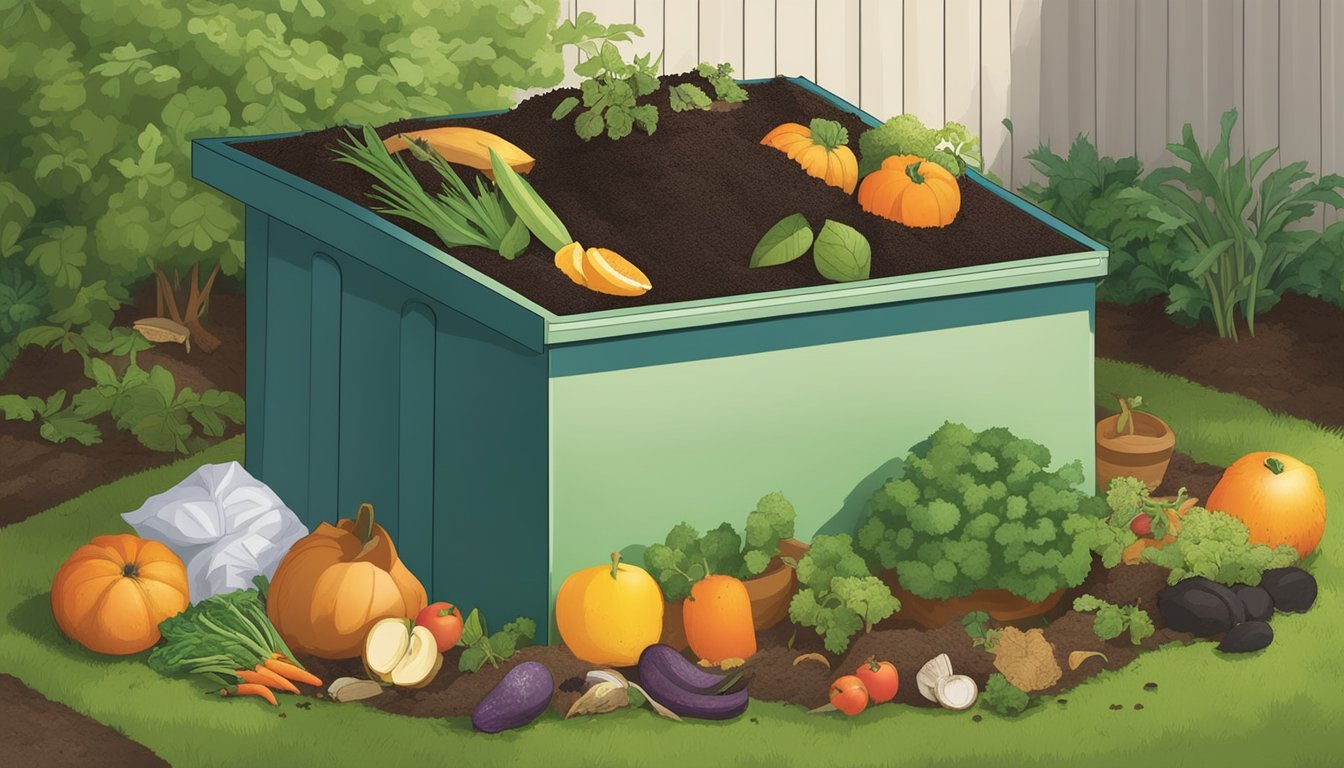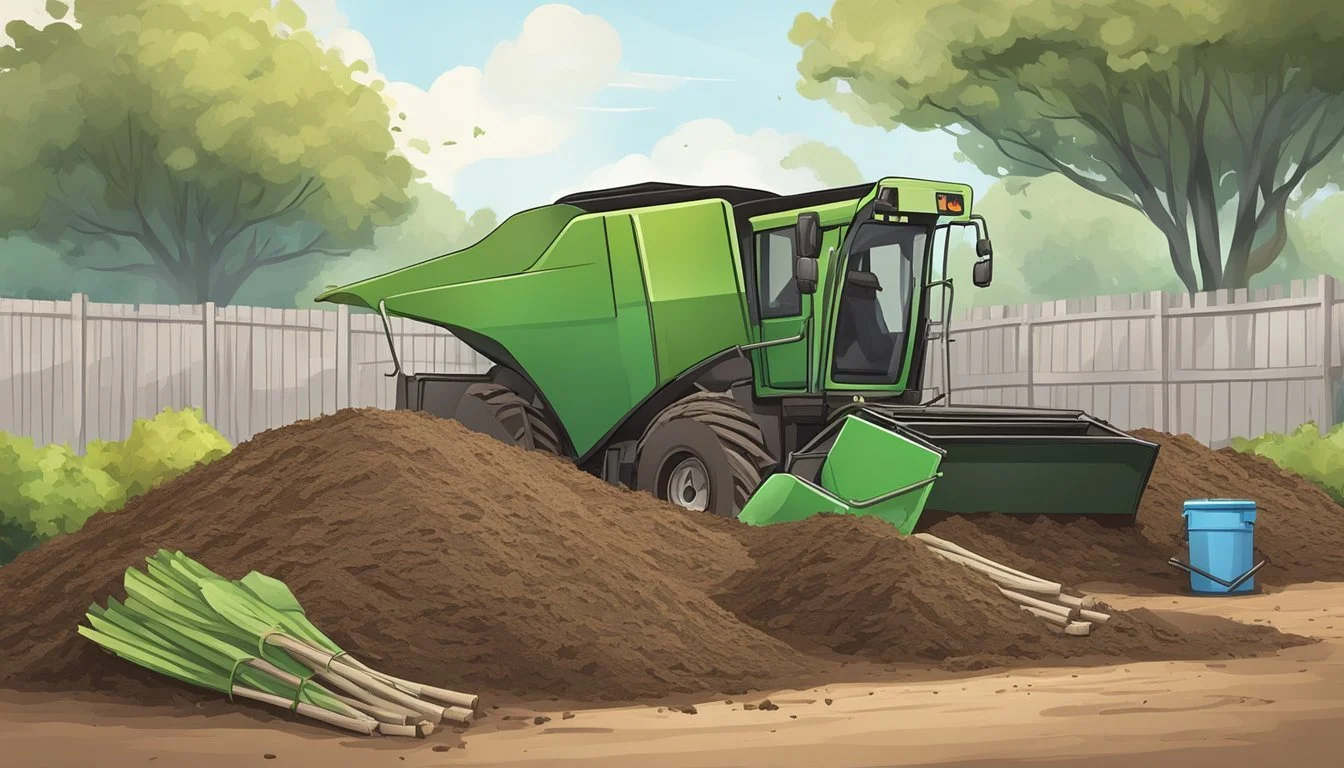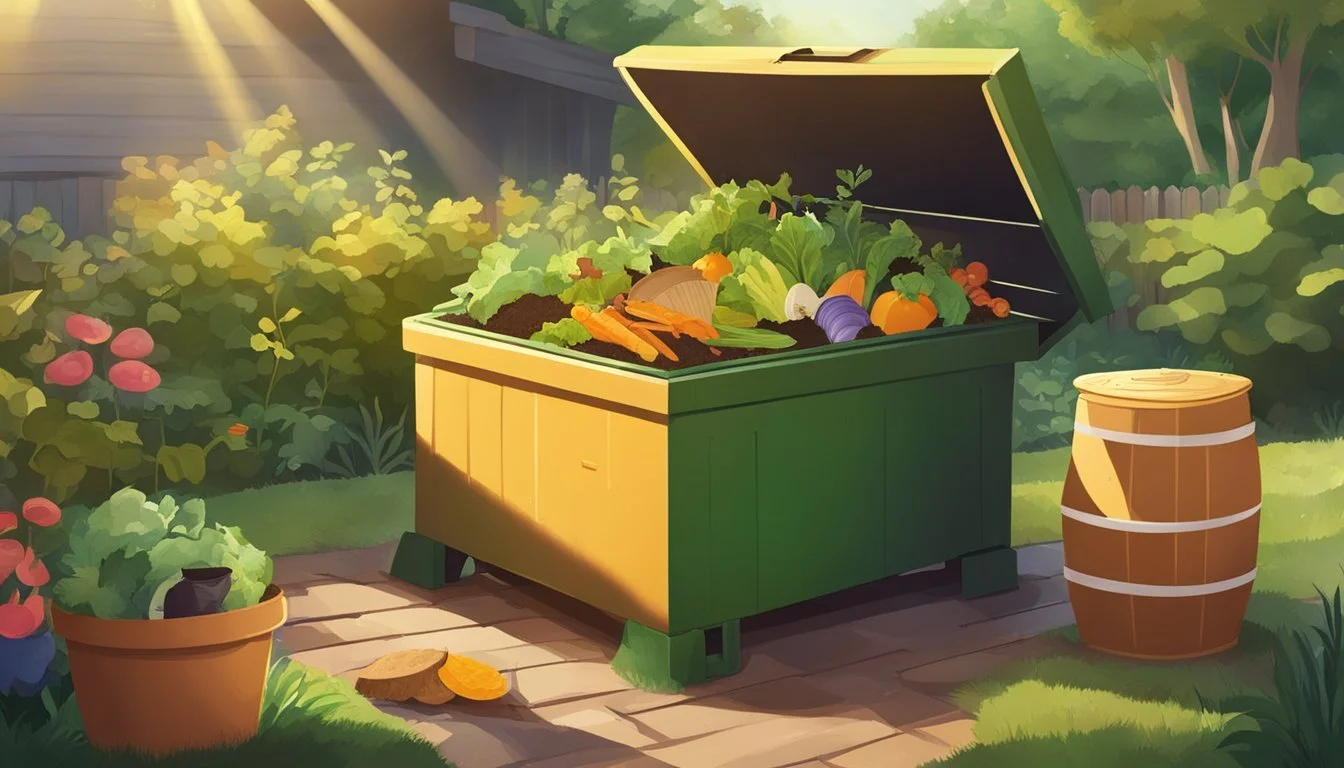Guide to Composting in Wichita Falls, TX
Essential Tips for Local Residents
Composting has become an essential practice for sustainable living and waste reduction worldwide. In Wichita Falls, TX, residents have the opportunity to participate in local composting programs that promote environmental stewardship. Through composting, organic materials like food scraps and yard waste are transformed into a rich soil amendment that can bolster garden health and reduce landfill waste. The city of Wichita Falls offers resources and events to support and educate the community on the benefits and methods of composting.
The Wichita Falls organics facility provides a central location where locals can both learn about composting and obtain high-quality compost for their gardening needs. With events such as the compost giveaway, Wichita Falls demonstrates its commitment to encouraging green practices among its citizens. By engaging in these community-oriented programs, individuals can contribute to a greener environment while enhancing the fertility of their land.
For those interested in the process and benefits of turning everyday waste into valuable compost, Wichita Falls stands as a beacon of progress in environmental conservation practices. Participation in the city's composting initiatives not only promotes sustainability but also inspires a closer connection to the cycle of organic life. Whether a seasoned gardener or a novice looking to start, there are resources available within the community to support the journey of composting in Wichita Falls.
Understanding Composting
Composting is an essential process that transforms organic matter into nutrient-rich soil, beneficial for both garden health and the environment. It is a sustainable practice resulting in carbon-neutral outputs.
The Science of Composting
Composting is a biological process in which microorganisms decompose organic matter—such as leaves, vegetable peelings, and fruit scraps—into soil. The right mixture of carbon-rich materials, or "browns," and nitrogen-rich materials, "greens," is crucial for effective decomposition. One should aim for the ideal ratio of roughly three parts browns to one part greens by volume to achieve a balance that encourages microbial activity without creating odor or attracting pests.
The transformation into compost happens in stages, starting with the bulk reduction of organic material, followed by a curing phase where the compost matures to create a stable product. The end result is a versatile, nutrient-rich soil enhancer that can vastly improve the health of garden plants.
Benefits of Composting
Environmental Benefits: Composting offers multiple environmental advantages. It reduces the need for chemical fertilizers, minimizes methane emissions from landfills, and lowers one's carbon footprint, contributing to a more carbon-neutral society.
Soil Transformation: Compost improves soil structure, texture, and aeration, and increases the soil's water retention capacity.
Nutrient-Rich Soil: The addition of compost introduces essential nutrients back into the soil which are vital for plant growth.
By encouraging local composting, cities like Wichita Falls can significantly reduce the volume of waste sent to landfills and provide community members with free compost, promoting sustainable practices within the local environment.
Composting Regulations in Wichita Falls, TX
Composting in Wichita Falls is governed by specific city ordinances and is influenced by state environmental policies, ensuring comprehensive management of organic waste. Residents and businesses must adhere to these regulations to contribute to the City of Wichita Falls' efforts in waste reduction and environmental sustainability.
City Ordinances and Guidelines
In Wichita Falls, the Choose to Reuse program is an initiative that promotes the reuse of organics through curbside green carts. The City of Wichita Falls has established a monthly fee of $3 for the use of these carts. Residents can obtain a green cart by contacting the sanitation department directly. This program is part of the City's commitment to reducing landfill waste and encouraging composting as a state-of-the-art waste management solution.
Regulations pertaining to composting at the city level can be located in the City Clerk’s repository of Ordinances and Resolutions. This resource allows residents to review existing regulations on composting by searching through topics or the year of adoption to ensure compliance with the City's guidelines.
State Environmental Policies
The Texas Commission on Environmental Quality (TCEQ) provides comprehensive guidelines for composting that affect Wichita Falls. Facilities engaging in composting must comply with 30 TAC 332.4 and air quality requirements under 332.8, preventing material discharge and pollution of surface water. These requirements are crucial for maintaining soil, air, and water quality across the state, including in Wichita Falls.
For further information or studies related to composting, stakeholders can reach out to the TCEQ, demonstrating the Composting Council's commitment to fostering regulated composting practices. This regulatory oversight is essential to manage environmental and neighborhood impacts, such as leachate, odors, and traffic, associated with composting operations.
Setup and Maintenance
Proper setup and maintenance are crucial for a successful composting operation in Wichita Falls, TX. They ensure that organic waste is transformed into nutrient-rich compost effectively and environmentally friendly.
Choosing the Right Location
The ideal location for a compost pile or bin is on soil or dirt, allowing organisms to access and aid in the decomposition process. The area should be well-drained to prevent waterlogging, while proximity to a water source facilitates moisture regulation. It’s advantageous to choose a spot with partial shade to prevent the compost from drying out too quickly in the hot Texas sun. However, the location should be clear of oil spills and not directly on concrete or rocks, which can hinder proper aeration and drainage.
Composting Equipment and Tools
A basic compost setup requires the following tools: a pitchfork or garden fork for turning the compost, a hose or watering can to maintain moisture, and gloves for protection. For containment, a compost bin or tumbler can be used; it's important to select one that provides sufficient aeration and allows for ease of use. If building a compost pile directly on the ground, one might consider constructing a simple frame using repurposed materials such as wooden pallets to help contain the compost. Regular turning of the compost with the pitchfork ensures even decomposition and maintains the composting process's efficiency.
What to Compost
In Wichita Falls, TX, residents can transform their kitchen and yard waste into a valuable soil amendment through composting. This section breaks down the types of organic materials suitable for a compost pile and what items should be avoided to maintain a healthy composting process.
Organic Materials for Composting
The foundation of any good compost pile is a variety of organic materials. These can include but are not limited to:
Green materials: Provide nitrogen, such as:
Vegetable and fruit scraps
Coffee grounds and filters
Fresh grass clippings
Plant trimmings
Brown materials: Provide carbon, vital for compost balance, like:
Dry leaves
Shredded paper and cardboard (ensure it is non-glossy and not colored)
Straw and hay
Wood chips or sawdust (in moderation)
Remember, the secret to efficient composting lies in balancing these elements to encourage proper decomposition.
Items to Avoid
While composting a wide range of organic material is beneficial, there are specific items that should never be included in your compost pile. These include:
Meat, fish, bones, and dairy products (they can attract pests and create odor)
Diseased or insect-ridden plants (they could spread diseases to other plants)
Weeds that go to seed (to prevent spreading weeds in your garden)
Pet wastes (they can contain harmful bacteria and parasites)
Anything treated with chemicals (could be harmful to the composting process and the environment)
By carefully selecting appropriate waste for your compost pile, you can ensure that the final product is safe and nutritious for use in your garden or landscaping.
Troubleshooting Common Issues
When composting in Wichita Falls, TX, you may encounter common issues such as unwanted pests and unpleasant odors, as well as challenges in managing moisture and temperature levels. This section offers effective solutions to address these problems, ensuring a successful composting process.
Addressing Pests and Odor
Pests: If pests such as rats, flies, raccoons, or skunks are attracted to your compost bin, it indicates the presence of inappropriate materials like meats or dairy products. To prevent this, ensure that you only compost appropriate materials and maintain a healthy balance of greens and browns in your compost pile. Bones, meat, and oily foods should be avoided.
Odor: Compost should have an earthy smell; foul odors can be a sign of an imbalance in the carbon-to-nitrogen (C/N) ratio or insufficient aeration. An ideal C/N ratio is 25-30:1, which is crucial for minimizing odor without compromising the decomposition process. If you notice an ammonia-like scent, this could indicate excess nitrogen, which can be corrected by adding more carbon-rich materials such as dry leaves or shredded paper. For further guidance on maintaining the correct C/N ratio, visit Composting Troubleshooting: Common Issues and Solutions.
Managing Moisture and Temperature
Moisture: Your compost pile should be moist, but not wet. Excessive moisture can lead to odors and fly attraction. To achieve the right moisture balance, add dry materials if the compost is too soggy and water if the compost is too dry. The compost should be similar in wetness to a wrung-out sponge. For more detailed insights, refer to troubleshooting common composting problems.
Temperature: Temperature is an essential factor in the composting process as it affects the rate of decomposition. A compost pile that's too cold may not break down effectively, while one that's too hot can kill beneficial microbes. Ensuring proper insulation and turning the compost regularly can help in maintaining an optimal temperature range, which generally lies between 90°F and 140°F for effective composting.
Advanced Composting Techniques
In Wichita Falls, TX, advanced composting techniques offer innovative approaches to managing organic waste and contributing to land restoration projects. These methods go beyond basic composting, introducing systems that enhance breakdown processes and provide environmental benefits.
Layering and Aeration Methods
Layering is a strategic approach to composting that involves alternating green and brown materials to achieve a balanced ratio of nitrogen and carbon. Green materials include kitchen scraps and grass clippings, which are high in nitrogen, while brown materials consist of leaves, straw, and paper, rich in carbon. The proper layering of these materials can accelerate the decomposition process, creating a nutrient-rich compost more efficiently. Utilizing aeration methods, such as turning the pile regularly or incorporating perforated pipes, ensures an adequate oxygen flow, which is crucial for maintaining the microbial activity that 'cooks' the compost.
Human Composting and Its Impact
Human composting, also known as natural organic reduction, is an eco-friendly alternative to traditional burial or cremation methods, turning human remains into soil-building compost. It's an emerging practice that can significantly reduce the carbon footprint associated with conventional end-of-life options. By transforming remains into a resource for land restoration, human composting contributes to the cyclical process of life, promoting growth and sustainability. This method has already taken effect in some regions of the United States, reflecting a growing societal interest towards environmentally conscious disposal practices.
Environmental Impact and Sustainability
In Wichita Falls, Texas, composting stands as a key practice for waste management, contributing to sustainability and environmental health by diverting waste from landfills and restoring land integrity.
Composting and Waste Reduction
Composting transforms organic waste into valuable soil amendments, effectively reducing the volume of waste that ends up in landfills. By composting materials such as food scraps and yard waste, Wichita Falls residents can play a significant role in recycling natural resources. This not only diminishes methane emissions from decomposing waste in landfills but also cuts down on the use of plastic bags often required for disposal, as these materials can be processed locally instead of being transported away.
Recycling: Organic waste is recycled through composting, reducing the reliance on plastic garbage bags.
Plastic Cups/Bottles: While these cannot be composted, residents are encouraged to reduce usage and recycle through appropriate municipal programs.
Metal/Glass: Separate recycling streams exist for these materials, ensuring they are reclaimed and not lost to landfill waste.
Contribution to Land Restoration
Composting produces a nutrient-rich soil conditioner, which supports land restoration efforts. When applied to gardens, parks, and farms in the area, this compost contributes to soil health, enhances water retention, and promotes healthy plant growth. This is critical in areas affected by erosion or urbanization, as it can help to rebuild the topsoil layer and foster sustainability in local agriculture and landscaping.
Land Restoration: Compost improves soil structure, supporting plant life and combatting soil degradation.
Aluminum Cans: Recycling aluminum saves energy and resources, as it takes less energy to recycle the metal than to produce new products.
By incorporating practices such as composting and recycling, the community of Wichita Falls actively contributes to a sustainable future, ensuring that the impact on the environment is mitigated and natural resources are preserved and restored.
Community Involvement and Resources
Community participation plays a pivotal role in the success of composting efforts in Wichita Falls, TX. Residents have access to a variety of resources that support and educate families and individuals on the benefits and methods of composting.
Local Composting Workshops
The city facilitates local composting workshops where residents can learn about composting techniques and gain direct experience. These events are specifically tailored to encourage families to start composting at home. The workshops provide guidance on how to effectively manage organic waste, creating a sustainable loop of resource utilization within the community.
Online Support and Services
Wichita Falls offers online support and services for those who prefer the convenience of accessing information digitally. The online platform includes a wealth of resources, ranging from instructional videos to a forum where the care team supports the community's composting queries. This digital approach serves a dual purpose: providing ease of access to valuable information and fostering an online community committed to eco-friendly practices.
Composting as a Service
In Wichita Falls, composting services reflect a commitment to environmental sustainability by offering residents a practical way to contribute to waste reduction. Through the city’s services, citizens are empowered to become active participants in waste management and contribute to a greener future.
Earth Portal Services
The City of Wichita Falls promotes a unique Choose to Reuse program that greatly aids in waste diversion from landfills. Residents can participate in this service for a monthly fee, receiving a green curb cart specialized for organic waste. The collected organic matter is then processed and transformed into compost, a valuable resource for enhancing soil quality and fertility. This service is not only a testament to the city's exceptional care for the environment but also an example of a practical Earth portal that brings sustainability directly to residents' doorsteps.
Planning for the Future
Looking toward the future, Wichita Falls has shown initiative in expanding its composting services. Prepaid options for waste management allow residents to plan ahead and ensure a sustained commitment to composting practices. By optimizing the process of turning waste into a resource, the city is carving out a final resting place for organic materials that is not a landfill but a productive component of the Earth's lifecycle. Through these forward-thinking strategies, Wichita Falls stands as a model municipality for environmental stewardship.
Conclusion
In Wichita Falls, residents have a valuable opportunity to both reduce waste and enhance their gardens through composting. The city's commitment to sustainability is evident in the initiatives like the semi-annual compost giveaways, where citizens can obtain high-quality compost for free.
Composting in Wichita Falls enables locals to partake in a greener lifestyle by turning yard and kitchen waste into nutritious soil. Participation in the Choose to Reuse program amplifies this positive impact on the environment.
It’s important for individuals to follow local regulations, such as covering trailers and truck beds when transporting compost, to maintain cleanliness and safety on roadways. This adherence underscores the community's role in successful environmental stewardship.
For first-time composters, Wichita Falls provides ample resources and support to get started. Moreover, events hosted by the city offer excellent chances to learn more about composting and its benefits.
Through these efforts, Wichita Falls exhibits a model framework for involving communities in sustainable practices, bolstering the health of both the local environment and residents' gardens.

